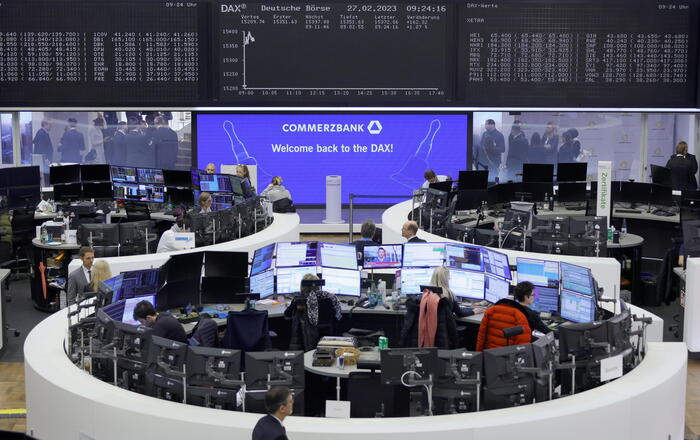Enlarge image
ECB headquarters in Frankfurt am Main
Photo:
Reiner Zensen / imago images / Reiner Zensen
The European Central Bank (ECB) has recently increased the key interest rate sharply five times in a row – but so far little of this has been received by German savers.
According to data from financial consultancy FMH, German credit institutions offer an average interest rate of just 0.71 percent on overnight money – with an inflation rate of almost eight percent in 2022, savings will continue to melt away.
The banks fare much better.
They benefit, for example, from the sharp rise in deposit rates, one of the key interest rates of the ECB.
The central bank thus earns interest on excess money from commercial banks that they park with it overnight.
The rate has been 2.5 percent since Thursday – the highest since 2008.
In recent years, the ECB has lowered key interest rates to historic lows – the deposit rate even into negative territory.
So commercial banks had to pay a kind of penalty interest if they deposited excess money with the central bank.
In some cases, they passed the negative interest rates on to their customers.
Where they didn't succeed, they had to pay extra.
Risk-free returns for financial institutions
In the meantime, the situation has changed completely: The banks can park their enormous excess reserves, which they have accumulated from the sale of government bonds to the ECB, among other things, with the central bank at the high interest rate with practically no risk.
They make a lot of money from this: the citizens' movement Finanzwende has calculated that German financial institutions alone could pocket around 27.4 billion euros in this way in the current year if the ECB, as expected, raises the key interest rate by another 0.5 percentage points by the middle of the year .
Even if key interest rates stopped rising in 2023, the banks would still receive around 25 billion euros in interest.
"Banks use this risk-free income to increase their profits and sometimes to distribute them, while often nothing arrives in the customer's accounts," says expert Michael Peters from Finanzwende.
“Why do banks’ customers receive little or no interest while the institutes rake in billions in profits from the ECB – risk-free and at the expense of the general public?
The ECB must finally put an end to this.
The central bank should no longer subsidize the banks unconditionally.”
In fact, the interest paid to the banks reduces the ECB's profits - and thus indirectly also the income of the states.
Because the ECB distributes a good part of its profits to the national central banks of the euro zone, in the case of Germany to the Bundesbank.
And the Bundesbank profit flows into the German state budget.
The more interest the ECB pays the banks, the less is left for taxpayers.
"These profits belong to society and should be paid out to governments," writes economist Paul de Grauwe of the London School of Economics (LSE) in an article for the Center for Economic Policy Research (CEPR).
He compares bank deposits at the ECB with retail customer deposits in current accounts, which generally no longer earn interest: »It is difficult to find an economic justification for bankers being paid for holding liquidity , while everyone else has to accept that they will not be compensated.«




/cloudfront-eu-central-1.images.arcpublishing.com/prisa/C3LDLHDAXBBCFCHWBPELHN64FU.jpg)

